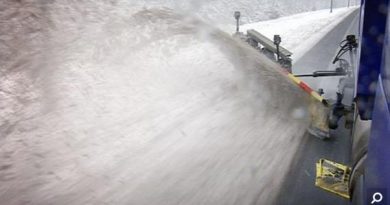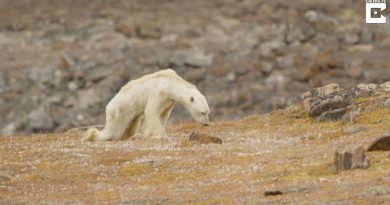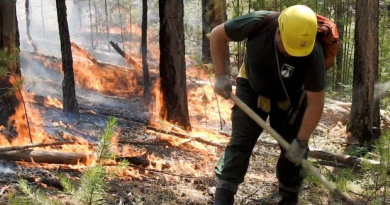Arctic Canada : Nunavut reports 1st case of COVID-19 in Pond Inlet
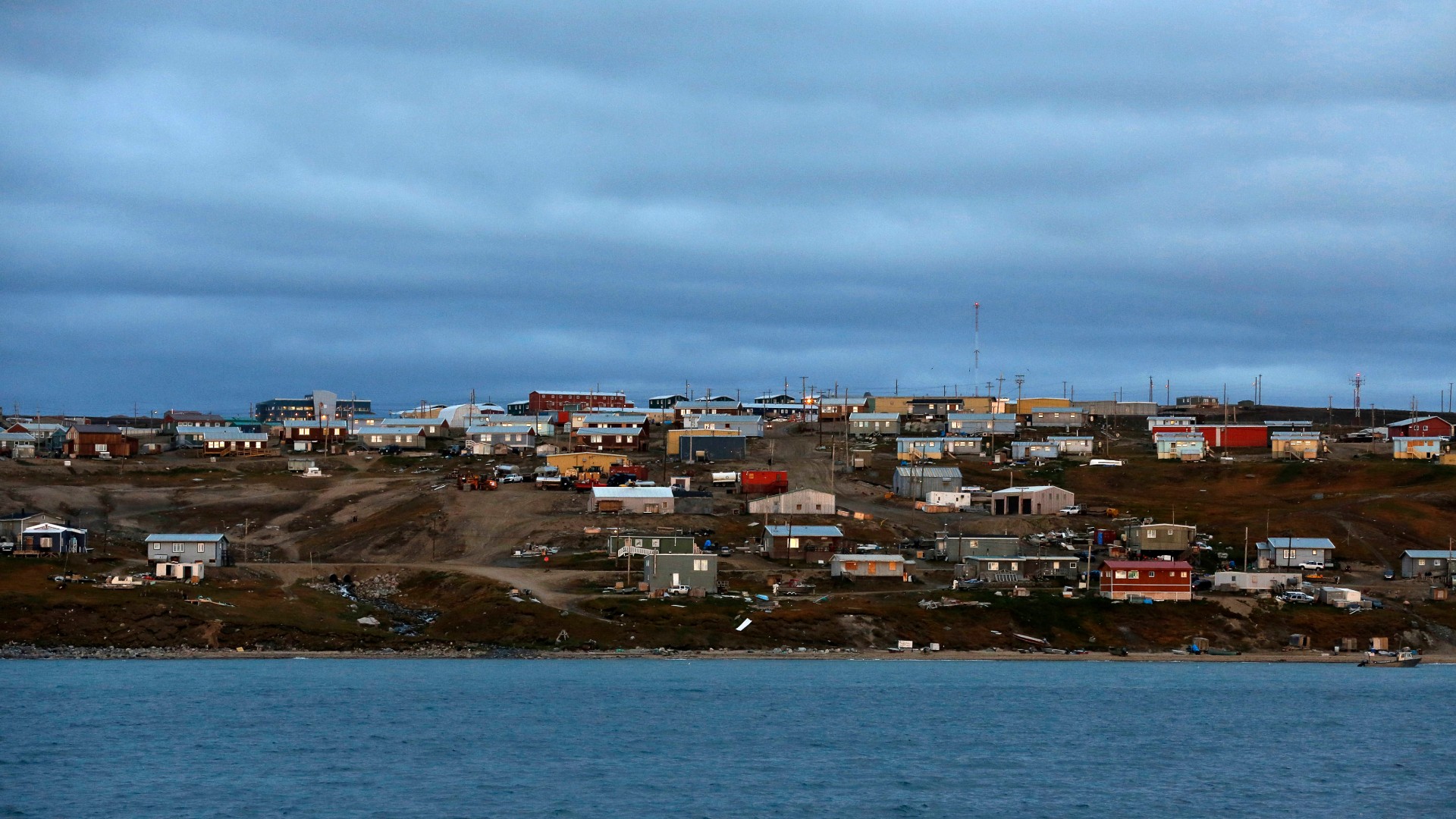
Nunavut has reported its first case of COVID-19 in the community of Pond Inlet, according to Nunavut’s Chief Public Health Officer Dr. Michael Patterson.
The territory was the last provincial and territorial jurisdiction remaining in Canada to have zero cases until Thursday.
The individual is in isolation and doing well, according to the territorial government in a news release sent Thursday morning.
“We did anticipate that it was only a matter of time before our territory had a confirmed case, and unfortunately today is that day,” said Patterson in the news release.
“We don’t know yet the full details of how this individual got COVID-19,” Patterson added at a morning press conference.
He said health officials in Pond Inlet have begun contact tracing, which is a process of mapping who the individual could have interacted with and how they may have contracted the virus.
Pond Inlet is a community of just over 1,600 people on the northeastern coast of Baffin Island.
About 20 people in community had contact with patient
The individual was already self-isolating when the test came back positive. From the initial investigation around 20 people have been in some type of contact with the person and have now been swabbed.
That number of contacts is low compared with what would be typical in the South, but Patterson cautions that health-care workers are still investigating.
Fewer than 10 people were under investigation and waiting for test results in Pond Inlet before this person tested positive. The test results came back late last night.
All of the 20 contacts identified are currently in the community.
Will likely be tested twice
Nunavut has some capacity in Iqaluit to test COVID-19 swabs. The government was saving its testing resources for high-risk situations, and this has been deemed as such.
The 20 swabs will likely be tested twice. Swabs will be tested in Iqaluit by the GeneXpert, a machine commonly used for tuberculosis testing, and a second set of swabs will be sent to Ontario to confirm the results.
The swabs that were collected Thursday are going to be picked up by the same plane that is dropping off the government’s rapid response team on its way to Pond Inlet to provide care and help the community manage.
The team is scheduled to arrive early Thursday afternoon, when it will begin setting up containment measures for COVID-19, Patterson said.
The plane will head back to Iqaluit and the samples that are destined for the GeneXpert machine at the Qikiqtani General Hospital in Iqaluit will be tested later on Thursday. Results are expected within a few hours.
The samples that will be tested at a public health lab in Ontario will spend the night frozen in Iqaluit before being loaded onto a cargo plane Friday morning. They will reach the lab on Saturday, but the government won’t get results before Sunday.
Health centre well-staffed, says top doctor
The health centre is well-staffed to deal with this, Patterson said.
The team is made up of public health nurses who have swabs, cloth masks and other equipment. They will be in charge of contact tracing. A logistics person to co-ordinate and run errands is also part of the team.
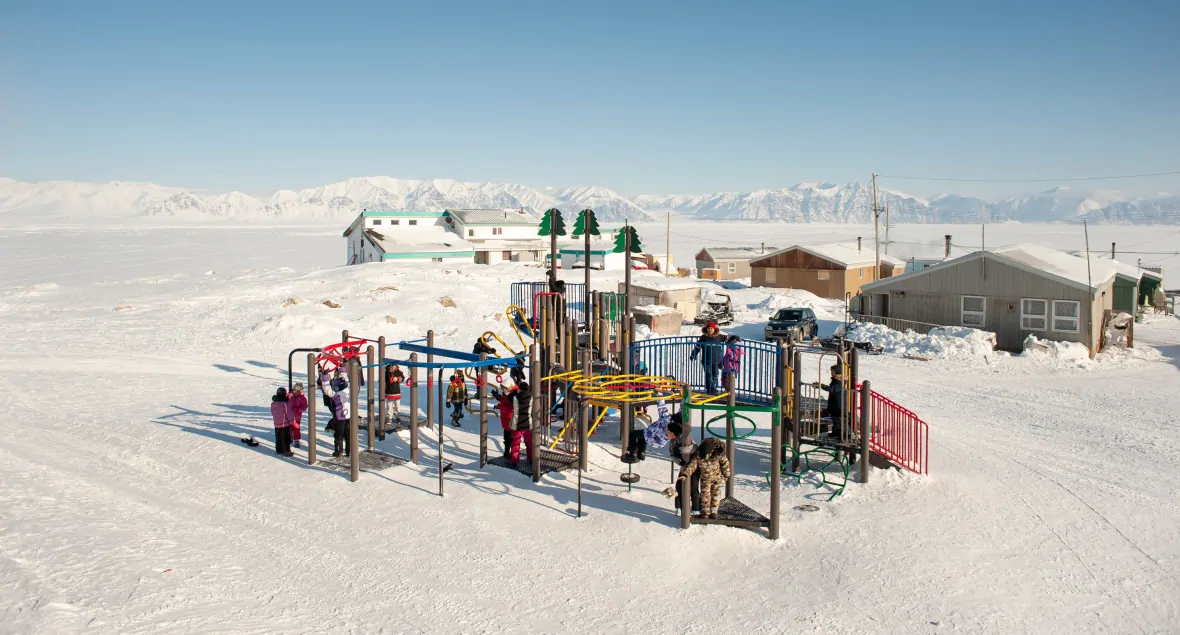
In most communities, the team would operate out of the Nunavut Arctic College campuses, but in some cases they will be based at the health centres.
These nurses will not provide acute care, such as providing oxygen or inserting IVs. If people present severe symptoms that cannot be treated at the local health centre in Pond Inlet, they will be medevaced to Iqaluit for care.
Until the extent of the spread has been determined in Pond Inlet, Patterson said all non-essential offices are to be closed and there are to be no gatherings in homes.
Fishing derbies and other activities that have been approved by the chief public health officer because they incorporate physical distancing procedures, can go ahead in other communities, but not in Pond Inlet right now.
“We recognize that this news may be frightening,” Patterson said. Critical services will be maintained, including access to services such as heat, water and sewer, and communications will not be cut off.
All travel to and from Pond Inlet is restricted, with the exception of cargo and emergency travel, the Thursday news release states. This includes travel by air and by land.
Missed the press conference? Watch it here.
“There is no need to panic. Nunavut has had time to prepare, and we are in a solid position to manage this. We ask people not to place any blame, not to shame and to support communities and each other as we overcome COVID-19 in Nunavut,” Premier Joe Savikataaq is quoted as saying in the news release.
Naming small communities unlike other territories
Of the three territories, Nunavut is the only territory that is publicly naming small communities with COVID-19 cases. Patterson said this is because confirmed cases will concern people in all 25 of Nunavut’s communities and the government doesn’t have the capacity to manage a surge of people getting tested at its health centres.
With this approach, health-care staff can be sent to the affected communities to ensure the work that needs to be done is.
Other than the community, no specifics on the individual will be released by the government.
Symptoms of COVID-19 can be found here.
Anyone with reasons to believe they have been exposed to COVID-19 is advised to self-isolate immediately for 14 days, to call the territory’s COVID-19 hotline at 1-888-975-8601 between 10 a.m. and 6 p.m., or call their community’s health centre immediately. People are advised to not go in person to a health centre.
Related stories from around the North:
Arctic: Roundup of COVID-19 responses around the Arctic, Eye on the Arctic
Canada: How did we get here? A timeline of COVID-19 in northwestern Canada, CBC News
Finland: First Covid-19 death reported in southwestern Finnish Lapland, Yle News
Greenland: COVID-19: Arctic science expedition postpones flight campaign after trainee tests positive for virus, Eye on the Arctic
Norway: Norwegian Arctic wilderness tourism hit particularly hard by coronavirus, The Independent Barents Observer
Russia: Risking death for Arctic gas? Northern Russia construction site becomes COVID-19 hotbed, The Independent Barents Observer
Sweden: WHO says Sweden’s coronavirus strategy could be ‘a future model’ post lockdowns, Radio Sweden
United States: COVID-19 pandemic raises hard questions about health disparities, says Int’l Inuit org, Eye on the Arctic

